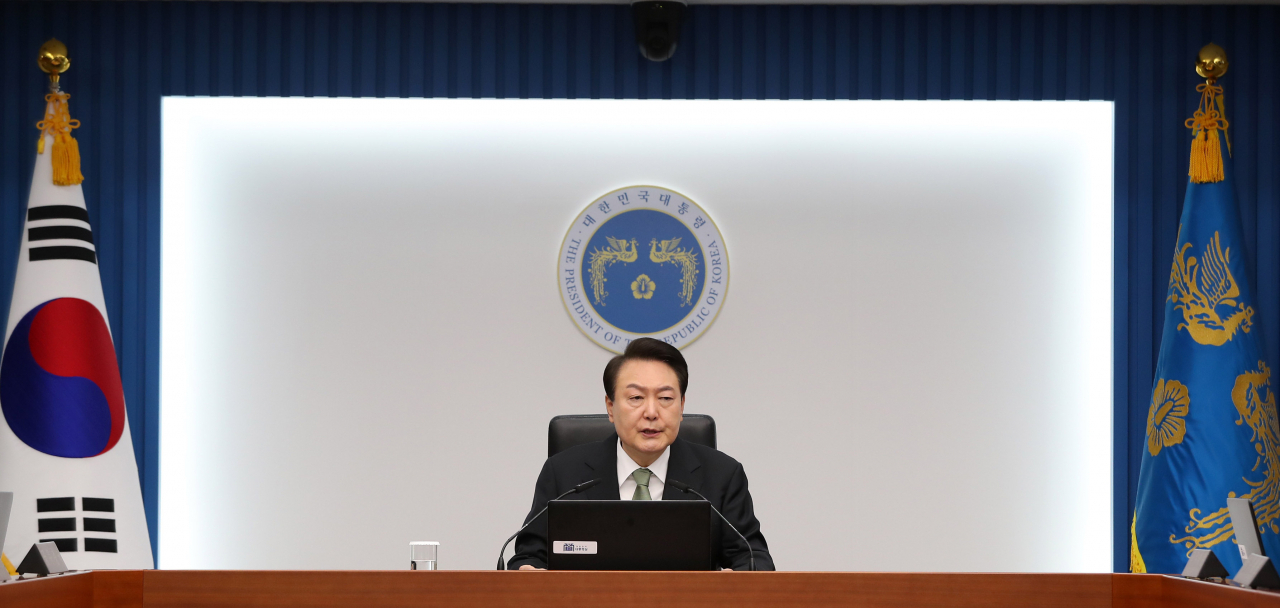 |
President Yoon chairs a weekly Cabinet meeting at the presidential office in Seoul on Tuesday. (Yonhap) |
Second Vice Foreign Minister Lee Do-hoon will be the next South Korean ambassador to Russia, a report said Tuesday, in the latest push by the Yoon Suk Yeol administration to quickly put an end to the vacancy of a top Seoul envoy in Moscow.
Lee will succeed Chang Ho-jin, who is currently serving as the first vice foreign minister, according to the local daily newspaper Chosun Ilbo.
Chang, the former Korean ambassador to Russia, was moved to his current post late last month amid an abrupt reshuffle carried out by Yoon’s office to soften discord within the administration over a Korea-US summit from April 24-29. The Foreign Ministry in Seoul said nothing has been decided on any reshuffles, without elaborating.
During a six-day state visit to the US, Yoon reaffirmed support for potential arms aid to Kyiv should a humanitarian crisis prompt it, a scenario Moscow says would make Seoul an immediate party to the conflict. Any decision to do so constitutes a “hostile anti-Russian act,” according to the Russian Foreign Ministry.
Yoon’s office still maintains that a humanitarian crisis involving “large-scale attacks on civilians, massacres the international community cannot condone or breaches of international humanitarian law” will potentially lead to arms aid. But that depends on “Russia’s actions going forward,” Yoon officials say.
A conservative leader leaning on the US, Yoon has been more vocal than his predecessors about contentious issues that require picking sides in an intensifying rivalry between the US and powers like Russia and China.
Wi Sung-lac, South Korea’s former chief nuclear envoy on North Korea who also later served as ambassador to Russia, said Seoul is right to side with Washington but it needs to reel in Moscow and Beijing “not quite as much, but to some level, at least.”
“Yoon officials seem to be thinking we just need an after-the-fact engagement with those two. For now, it looks okay but in the long-term it actually isn’t,” Wi said of the roles Russia and Beijing have played in affecting Seoul. The two countries have a permanent seat on the United Nations Security Council, a 15-member UN body that is still at odds over reining in North Korea’s aggression.







![[Today’s K-pop] Blackpink’s Jennie, Lisa invited to Coachella as solo acts](http://res.heraldm.com/phpwas/restmb_idxmake.php?idx=644&simg=/content/image/2024/11/21/20241121050099_0.jpg)